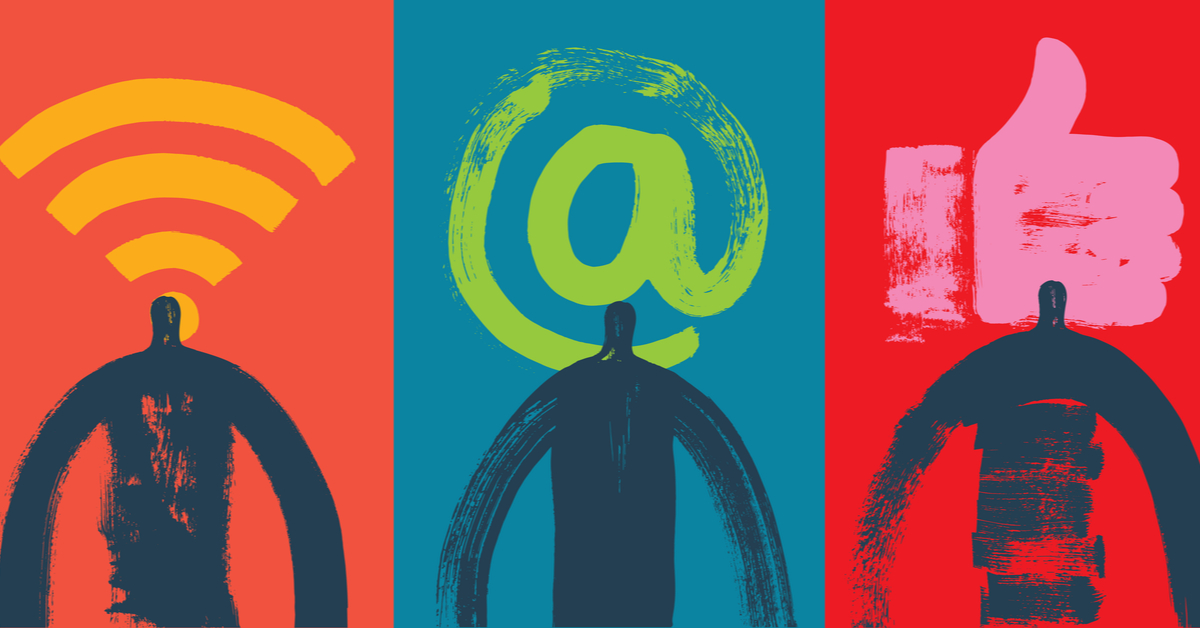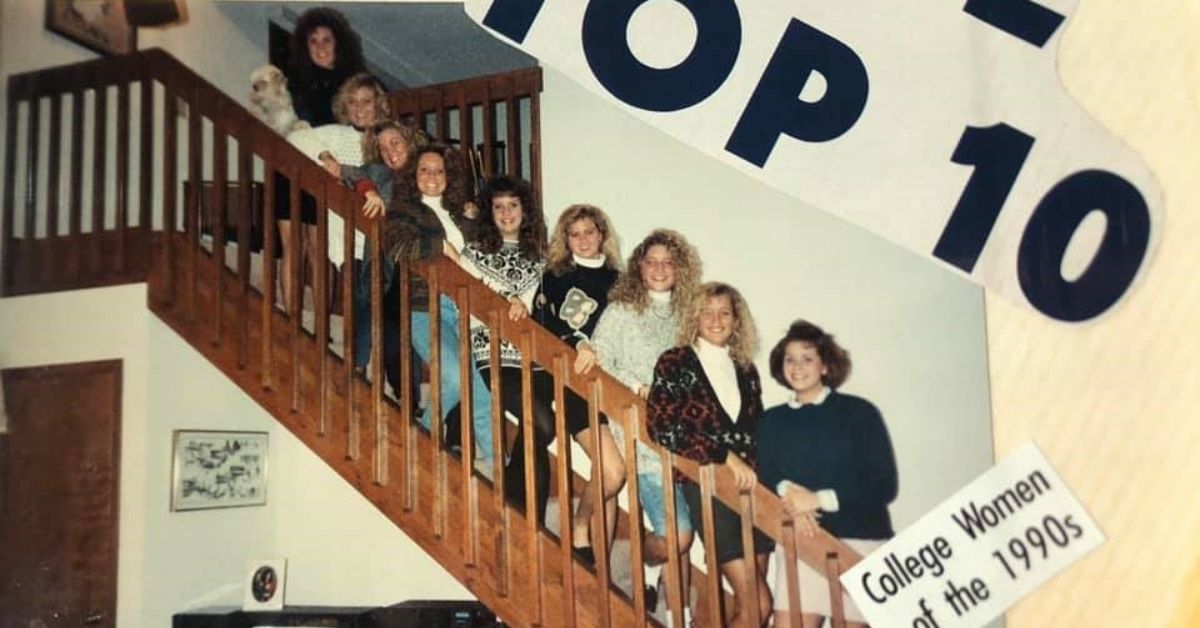Attending the University of Florida in the 1990’s consisted of juggling multiple jobs to make ends meet while also ensuring I passed a full load of classes. But somehow, I still found time make it to the pool and occasional night on the town with my friends. You can see me here with my sorority sisters getting ready to do go out during a girls weekend getaway in Jacksonville. The life of flexible schedules is amazing!
Now we Gen-X’ers are the ones having to figure out how to work from home while maintaining a balance for our families, and ensure our children are safe and receiving a fulfilling education. We (those same girls you see above) are college professors, high school teachers, real estate guru’s, Yogi’s, music producers, marketing directors, photographers, CFO’s, customer service execs, and business owners. We orchestrate activities that help develop and maintain a sense of community and civic responsibility but still need a weekend getaway every once in a while!
 And even 30 years later, we still stay in touch, via social media and group text, while occasionally getting together for a weekend getaway, but with much less hair spray.
And even 30 years later, we still stay in touch, via social media and group text, while occasionally getting together for a weekend getaway, but with much less hair spray.
How does being Gen X define us? Gen X are the population born between 1965-1980 and are currently between 40-55 years old. They are now sending their kids to college and are often still raising young children at home – or in some cases both! They are the second largest spending generation annually. Some believe that Gen Xers are that last remaining generation that is more apt to want to call in for customer service. Others disagree.
Yes – I am Gen X. BUT… I do NOT want to make a phone call for customer service, or really ever, if I can help it. So, why the stereotype among businesses that have us so often turning to Ma Bell? Especially when this very demographic is rife for the picking on their own company employment rosters and could learn so much just by asking a few questions. To find out, I conducted a short survey of about 20 Gen-Xers … some that I knew, some that I didn’t. Yes, it’s a small sample size, but it provides some very valuable findings IMHO. (Hint: You may be GenX if the use of that acronym bothered you.)
Notably, some common traits were identified that may inform your perceptions of who you are servicing and how they wish to engage and their expectations around customer experience.
Phone calls are our fallback plan, at best
When Gen Xer’s have their customer hat on, much like their younger counterparts, they have abandoned the phone as a first option for getting service and turning to their mobile device and digital channels. In my very informal, yet informational survey, I found that this group prefers email or text, here’s why:
- It “keeps my information for me” via the message thread. Yet even some challenges with email were identified, with one interviewee stating “I would love something different though. I hate following along with emails. They seem very out of order and convoluted.”
- Making calls is hard to manage – this generation in more traditional times has had to do a lot of travel for work – whether by car or plane – making email or text a more preferred option due to ability to reply when it is convenient.
- It allows consideration of language.This generation has been trained from day one to read, re-read, and breath before sending that email response, to think about their words a little more carefully.
So, when does that good old phone call come into play? There are 3 key times:
- When they don’t get a reply (we will talk about expectations on that one later).
- When they need an immediate response.
- When they know they will not be able to reply to you in a timely manner.
Wait, what? They care about you and your timelines?? That’s new! And it means they know you need this information ASAP, yet even an email response is too cumbersome due to time constraints associated with other matters. Then Gen-X will go ahead and make that phone call just to get that item off their list.
The same goes for personal communications. How traditional are we as a group in this area? Not traditional at all! Unless you consider text traditional at this point. All respondents replied with text as the first way they communicate directly with family – followed by video calls to “catch up”. And for their friends… texts, and group texts. Talk about efficient!! And then the occasional phone call when text is just too much – aka as a last resort.
We are adaptive to change
Remember, this is the generation that grew up with the one corded telephone in the kitchen that could stretch through 2 rooms in the house (our version of mobile). We begged and pleaded to get a stereo system in our bedroom sometime before high school. We had an old school Atari, and for the top end of this generation, a Commodore 64 was our first computer, or so says my survey. Todays generation wants a device that does all of that plus some, and they start asking at 7 or 8 years old!
Does our upbringing negatively affect how much we have, or are willing to, adopt and adapt to new technology? Survey says… No!
We are actually the generation that grew up seeing a lot of these new-fangled devices (i.e. cell phones, home game systems, etc.) come to life while we were in our prime (college or younger). And we’re since “time-tested” as we’ve adapted to upgrades or flat out abandoned what have become dinosaurs in favor of slicker, faster multi-functional devices. And now, we are the ones raising Gen Z. If that doesn’t keep us up to date, what would!?!?
We understand digital – and value it – for all the right reasons
The first “digital” communication channel I remember is email. And I did not expect much of a response, if any, from businesses when I first started testing it as a means of getting in touch with a company. Today there’s a broad realization amongst those surveyed (and myself) that electronic communication, especially web chat and text messaging are much more efficient and earn more business than trying to be reliant solely on telephone and physical mail for communication. It should be noted that every respondent in this survey indicated they are either self-employed or in some level of management role within an organization. The consensus is that recognizing the convenience of and adapting to these new methods of communicating has benefited them and their businesses throughout their careers.
While we will adapt, however, a big difference is that we don’t tend to “shortcut”. One individual replied, “I hate texting shorthand. I try my best to communicate the way I would speak with someone versus abbreviations.”
What does that mean to your business? It means these customers generally care about formalities, pleasantries, and what constitutes respectful communications. While emoji’s and LOL have their place, for Gen X consumers, that place is not in business – neither B2B nor B2C. Our true expectations of businesses in the big scheme of things is quality communication and timely service – no matter how they do it.
When asked how they like to communicate and interact, responses most commonly included text messaging, web chat, and email. Why are these digital methods preferred? Three main reasons:
- Tracking – information is retained electronically to confirm details
- Convenience – “I can respond when convenient for me – especially when I’m on a job site, or already interacting with another client.”
- Privacy – “Others don’t hear my conversation.”
When it comes to other communications, video is leveraged for both personal and professional communications and social media is a common way of keeping up – with respondents specifically mentioning Facebook and Instagram.
They don’t think you (businesses) are getting it right
It’s unanimous! All survey respondents felt that businesses are not getting customer service communications right – and that they aren’t even close! The opinion is that most businesses are lacking in some form or have staff that refuse to embrace the tools that the company puts in place for them. And they aren’t listening to their customers about what works.
To quote one response, “I’m not sure I feel like anyone is doing it right however I do like apps like BAND and GroupMe to help understand specific in-line messaging.” Personally, I love that they are giving tips for us on who is (or is not) getting it right. We just have to listen! And at the same time showing their digital savvy – I hadn’t heard of BAND until I read this response, had you?
Here are a couple of other telling tidbits of Gen X feedback:
- We have grown beyond a mandatory phone call, but feel a lack of personal service now more than ever.
- We have grown with technology and their opinion about customer service offers: “If I can do it, so can they!”
- We want things to be easy. “My pin is now 0000 so that I can get through to an agent faster”
- We need to multi-task and use text because it’s easy and quick.And we can do it while doing other things.The same thing applies to online customer service.
- Patience is not a virtue.We want to hear from you. But, in a timely manner please. While Gen X doesn’t have the limited patience associated with Millennials, they do expect response within 2 hours, or worst case by end of business day.For after hours inquiries, getting back to them during the first 3 hours of the next business day works.Of course, all of this depends on the inquiry and its urgency.

They manage your customer experience
One respondent who ran an ecommerce business development group (sales, service appointments, and outbound marketing campaigns) for a major auto dealer set expectations for his staff to respond to purchase inquiries within 3 minutes, resulting in much higher customer satisfaction. Based on this immediate response approach, their department was doing close to 50% of the vehicle sales volume for the dealership across 3 locations with only three employees handling all inquiries. This certainly calls into question the costs associated with traditional means for doing business.
Another manages a real-estate business that they have taken from individual personally owned to an office of agents. They have requirements to call leads within a defined amount of time, or they lose it. Time is of the essence when it comes to response – be it for sales or service. And in any customer facing business we have to put ourselves in the customers shoes. They want a response, and they want it now.
Another respondent owns and manages a yoga studio – a business she has built from the ground up. She doesn’t have a call center. Instead, inquiries are either handled by her, one of her two employees, and on occasion, her children. Much of her business is acquired and developed over social media – especially through promotion. This leads to an expectation of this to be a standard way of hearing news about the business (hours, new classes, etc) or communicating with the business (class and event reminders, discussion forums, customer inquiries). We as businesses must recognize we can’t use social media for one aspect of our business and ignore it for others.

So, what does it all come down to? We Gen X’ers recognize that younger generations have “grown up” with more technology at their fingertips. That said, Millenials or Gen Z do tend, in our opinions, to have some differing perspectives when it comes to technology and customer service. (Spoiler Alert: Gen Z doesn’t want to talk to you either). Here are some observations about differences Gen X survey respondents see in expectations of themselves vs what they believe are those of the younger generations:
- Less patience. Younger generations have a much shorter tolerance for delayed response.Their expectation is immediate response.All the time.
- Digital preference. They mostly shy away from voice and/or face-to-face communications. Whatever our druthers, we older gens must recognize this trending preference or risk being left behind.
- Faster is better. Much like us, younger generations wish to get to the heart of matters quickly, but the means for doing so is quite different. While we often rely on lists or other print to summarize pertinent information, Gen Z shows a preference for quickly accessing this information through video, especially in the form of entertaining snippets (think TikTok or Snapchat).
- It’s not personal.They work on their own timeline, without the careful consideration of others, or your business.And, if that doesn’t work for you, they move on, without question or concern. If you get it right, they will show loyalty.
- It’s not a marriage.They don’t have as much desire to have a “relationship”.While we Gen X and older still show a penchant for formality and establishing & maintaining relationships even while conducting business in newer, fast-paced modalities, for better or worse, younger generations are not burdened by such ceremony. We must recognize that young folk are satisfied simply to get an answer, acknowledgement, good service (whatever) and quickly move on.
So, why does this all matter?
Businesses that don't adapt to the needs and preferences of their customers are bound to be left behind. Those that embrace it, by combining adaptive communication with a customer service approach that understands expectations will far out-pace their competition and be known throughout their industry.
Want proof? Remember that auto dealer and ecommerce business? Since the respondent left the auto dealer, the business has reversed most of the changes that were put in place as new leadership has come on board. This has resulted in their overall ecommerce business dropping over 30% and the loss of service customers as well. This proves that by walking away from the needs of your customer, your business will suffer the consequences.
The technology is out there to do better business. If you want to thrive instead of just survive, focus on how to properly use this technology – because we haven’t seen a stellar example yet! Not a single survey respondent had an example of a customer experience “done right”. They typically either started great and then fell off, or just fell short all together from a convenience and ease expectations perspective.
Businesses are sitting on a gold mine of information, go talk to your Gen X-ers. Listen to what they have to say about the experience you should be delivering, and how you can deliver it. Then empower them to make it happen! Its free research, and I would bet it would pay off in the long run.
Learn about all the considerations and how to keep not just your contact center, but your customer service experience, ahead of the game.




